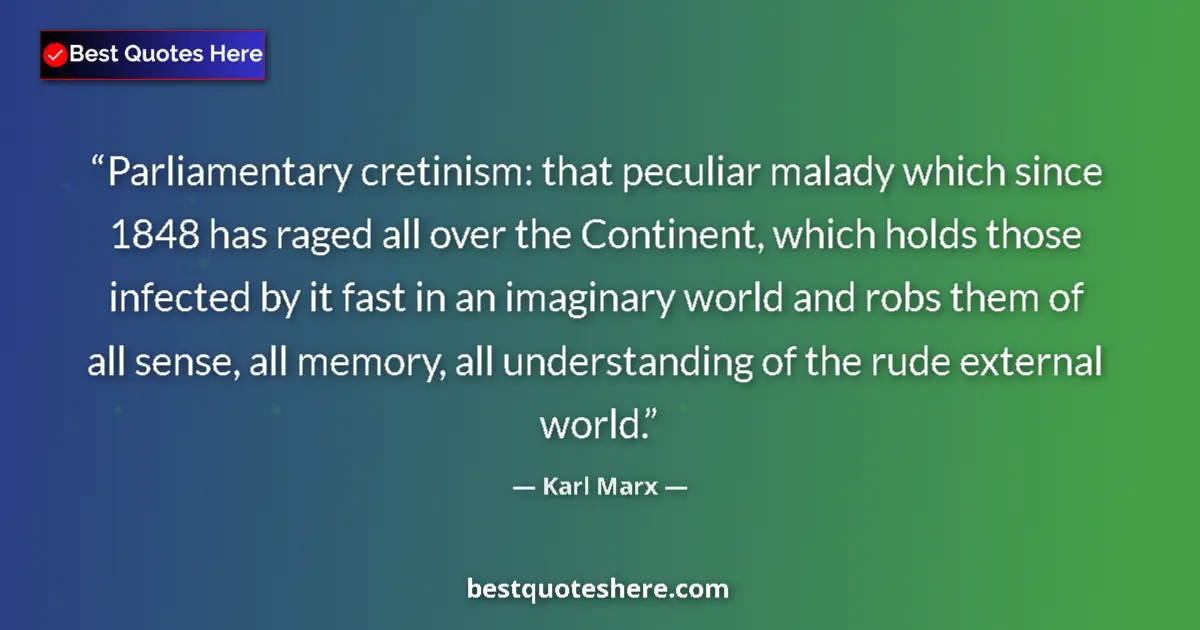"Parliamentary cretinism: that peculiar malady which since..." - Quote by Karl Marx
Parliamentary cretinism: that peculiar malady which since 1848 has raged all over the Continent, which holds those infected by it fast in an imaginary world and robs them of all sense, all memory, all understanding of the rude external world.

More by Karl Marx
“When people speak of ideas that revolutionize society, they do but express the fact that within the old society, the elements of a new one have been created, and that the dissolution of the old ideas keeps even pace with the dissolution of the old conditions of existence.”
“Beauty is the main positive form of the aesthetic assimilation of reality, in which aesthetic ideal finds it direct expression.”
“Money is the alienated essence of man's work and existence; this essence dominates him and he worships it.”
More on Politics
“A democrat must be utterly selfless. He must think and dream not in terms of self or of party, but only of democracy.”
“Ignorance and prejudice are the ballast of our ship of state - however, ships without ballast are not seaworthy and cannot sail in the tempests, nor reach a safe harbor.”
“There is hardly such a thing as a war in which it makes no difference who wins. Nearly always one side stands more of less for progress, the other side more or less for reaction.”
More on Criticism
“Bear in mind that the measure of a man is the worth of the things he cares about. If it is good to say or do something, then it is even better to be criticized for having said or done it.”
“[The] erroneous assumption is to the effect that the aim of public education is to fill the young of the species with knowledge and awaken their intelligence, and so make them fit to discharge the duties of citizenship in an enlightened and independent manner. Nothing could be further from the truth. The aim of public education is not to spread enlightenment at all; it is simply to reduce as many individuals as possible to the same safe level, to breed and train a standardised citizenry, to put down dissent and originality.”
“One battle doesn't make a campagin, but critics treat one book, good or bad, like a whole war.”